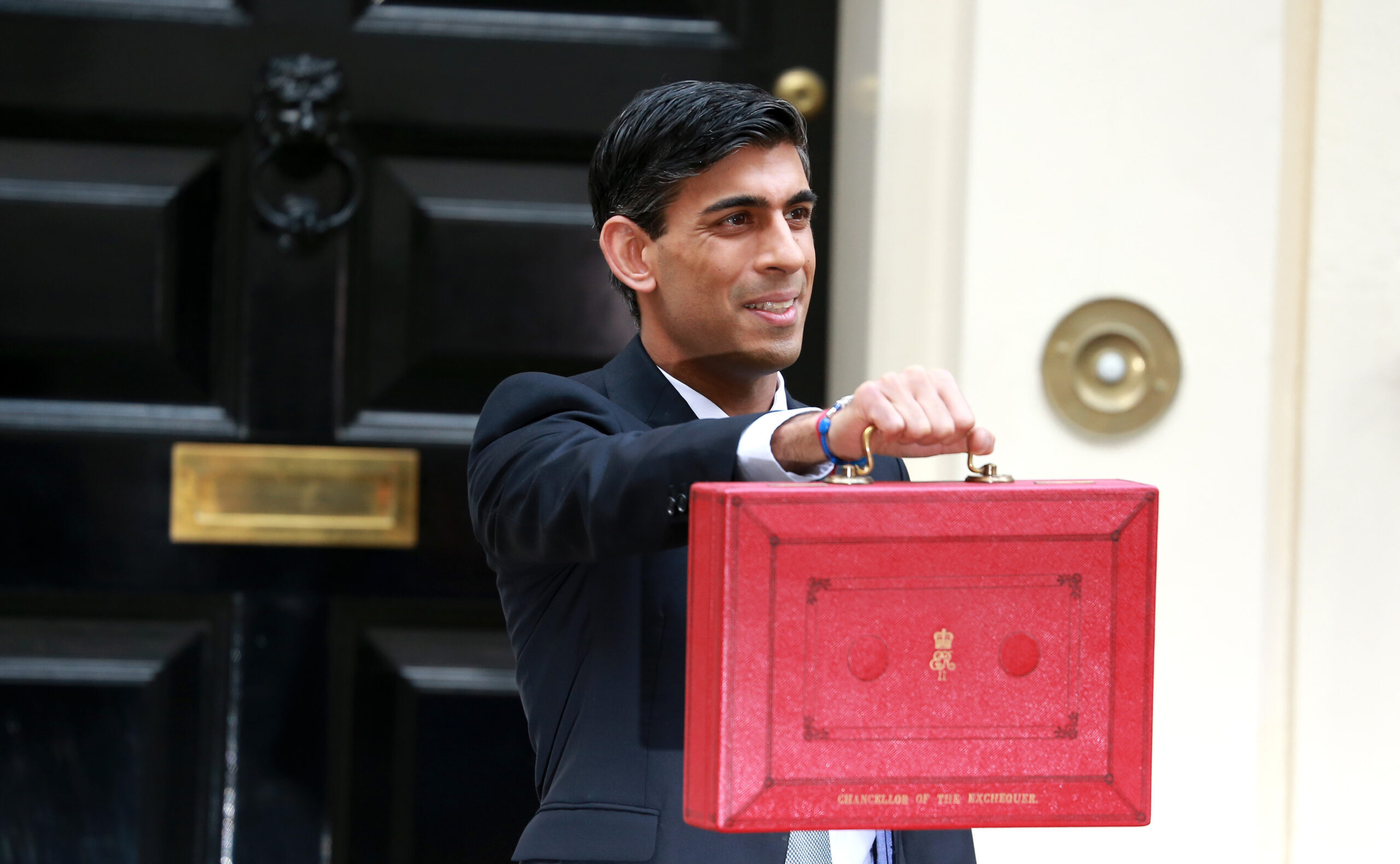Brewin Dolphin outlines out what the Budget could mean for your finances – and what steps you could consider taking now.
With the government’s Covid-19 spending bill approaching £300bn[1], there has been a lot of talk that the chancellor will increase taxes and axe reliefs to cover the costs.
Some tax rises could be revealed in the budget on 3 March, although it seems more likely any such announcements will occur further down the road.
Either way, it is a good idea to make the most of tax reliefs and exemptions while you still can. The Office for Budget Responsibility recently estimated that government borrowing would hit an eye-watering £394bn this tax year – the highest recorded level since World War II[2]. Many commentators think it is inevitable that households will have to foot at least some of the bill, with investors, higher earners and pensioners likely to be hard hit.
Although the Institute for Fiscal Studies (IFS) has calculated that increasing income tax, National Insurance and VAT by 1% would raise £19bn of revenue a year[3], the government has pledged not to increase these taxes in this parliament. Instead, it may look at reforming capital gains tax, pensions tax relief and inheritance tax (IHT).
Will higher rates of CGT be introduced?
A report by the Office of Tax Simplification (OTS) has led many to believe that higher rates of capital gains tax (CGT) are on the horizon. The report suggested aligning CGT and income tax rates, and cutting the annual CGT exemption from £12,300 to between £2,000 and £4,000[4]. If the chancellor goes ahead, more of your investment gains could be subject to tax – and at a higher rate.
There are a few steps you can take now to protect your money from CGT:
- Make sure you have used your £20,000 ISA allowance. Any gains you make on investments inside an ISA are free of CGT.
- If you are thinking of selling assets that have made gains, doing so this tax year will enable you to take advantage of the current CGT exemption and rate.
- If you have already used your CGT exemption, transferring assets to your spouse or civil partner could let you maximise their exemption as well. If they are a basic rate taxpayer, gains over the exemption could be taxed at the lower CGT rate of 10% (2020/21 tax year).
You can also carry forward unused capital losses from previous tax years to offset gains.
Could we see the removal of higher rate tax relief on pensions?
It is rumoured that the chancellor is considering removing higher rate tax relief on pension contributions and introducing a flat 25% rate instead. This would be good news for basic rate taxpayers, who currently get 20% tax relief, but bad news for higher and additional rate taxpayers, who can currently claim up to an additional 20% and 25%, respectively, via their tax return.
Reforming pension tax relief has proved difficult in the past. But with analysis by the Resolution Foundation suggesting this would save the government £4bn a year[5], it could be one way of helping to reduce the budget deficit.
If you are a higher or additional rate taxpayer, it may be worth making extra pension contributions to make the most of the current tax relief rate.
However, you must make sure additional contributions would not push you over your annual or lifetime allowances.
What about the pension tax-free lump sum?
The IFS has suggested that the 25% pension tax-free lump sum is reduced, describing it as ‘overly generous’ for people who have saved up large amounts in their pension[6]. This move would expose more pension income to tax.
If you are about to retire, you might be tempted to take your pension tax-free lump sum before any such changes occur. This won’t necessarily be the right decision. If you don’t need the money, it could end up sitting in a bank account and earning very little interest. The money will form part of your estate, meaning your beneficiaries may have to pay IHT on it when you die. There is also a risk that you won’t have enough retirement income in the future.
Is inheritance tax reform on the cards?
It has been speculated that the Treasury will reform the IHT nil-rate band, which could affect how much of your estate you can pass on tax-free when you die. There could also be a reduction in the annual gift allowance, which is currently £3,000. This would affect the value of gifts you can give away each tax year without them being added to your estate.
If you are planning on making any gifts, you might want to do so before the end of the tax year. It is also worth speaking to a financial planner to ensure your estate is arranged in the most tax-efficient way possible. Wills, trusts and insurance are just some of the ways to reduce your estate’s IHT bill.
Is a one-off ‘wealth tax’ likely?
There has been lots of speculation that wealthy people will have to pay a one-off tax to cover the Covid-19 bill. A report from Warwick University and the London School of Economics said this so-called ‘wealth tax’ could be payable on all individual assets above £500,000 at a rate of 1% for five years. It calculated the tax would raise £260bn for the government[7].
It seems unlikely that such move would go ahead, as the chancellor has already said he does not feel a wealth tax is appropriate. The report itself suggested that reforming IHT and CGT would be a simpler option. Are there other potential reforms? Some of the other ways the chancellor may look to start to pay the government’s Covid-19 bill include ending salary sacrifice, levying a tax on inherited pensions, ending the fuel duty freeze, and increasing corporation tax.
We will have to wait until 3 March to discover what the chancellor has in store. However, maximising your allowances and structuring your finances efficiently makes sense regardless of whether big changes are on the horizon.
Even if taxes don’t change significantly in the March budget, it seems likely they will at some point, making long-term financial planning more important than ever.
Budget 2021: How it will impact lawyers & your clients?

Find out at our FREE, online event on Friday 5 March!
Brewin Dolphin and Legal News Wales present a free, bite-sized event for lawyers to help explore the impact of this year’s Budget, for lawyers and their clients on Friday 5 March 2021, 12-1pm.
The team at Brewin Dolphin will unpick the key points from this year’s Budget, to help lawyers understand what they mean for you and your clients.
We’ll also host a Q&A session to answer any questions you might have on the impact of the Budget announcements.
Book now
All are welcome to join us. To book your free place at this online event, click here.
___
[1] https://www.gov.uk/government/publications/spending-review-2020-documents/spending-review-2020#:~:text=Since%20March%2C%20the%20
[2] http://cdn.obr.uk/CCS1020397650-001_OBR-November2020-EFO-v2-Web-accessible.pdf
[3] https://www.ifs.org.uk/publications/14989
[4] https://www.gov.uk/government/publications/ots-capital-gains-tax-review-simplifying-by-design
[5] https://www.resolutionfoundation.org/app/uploads/2016/03/Pension-tax-relief.pdf
[6] https://www.ifs.org.uk/bns/bn130.pdf
[7] https://warwick.ac.uk/fac/soc/economics/research/centres/cage/news/09-12-20-should_the_uk_have_a_wealth_tax_the_wealth_tax_commission_publishes_its_recommendations
Disclaimer
Brewin Dolphin Limited is a member of the London Stock Exchange, and is authorised and regulated by the Financial Conduct Authority (Financial Services Register reference number: 124444). Registered office: 12 Smithfield Street, London, EC1A 9BD. Registered in England and Wales no. 2135876. The value of investments, and any income from them, can fall and you may get back less than you invested. Tax treatment depends on the individual circumstances of each client and may be subject to change in the future. Information is provided only as an example and is not a recommendation to pursue a particular strategy. Information contained in this document is believed to be reliable and accurate, but without further investigation cannot be warranted as to accuracy or completeness. Opinions expressed in this publication are not necessarily the views held throughout Brewin Dolphin Ltd.


